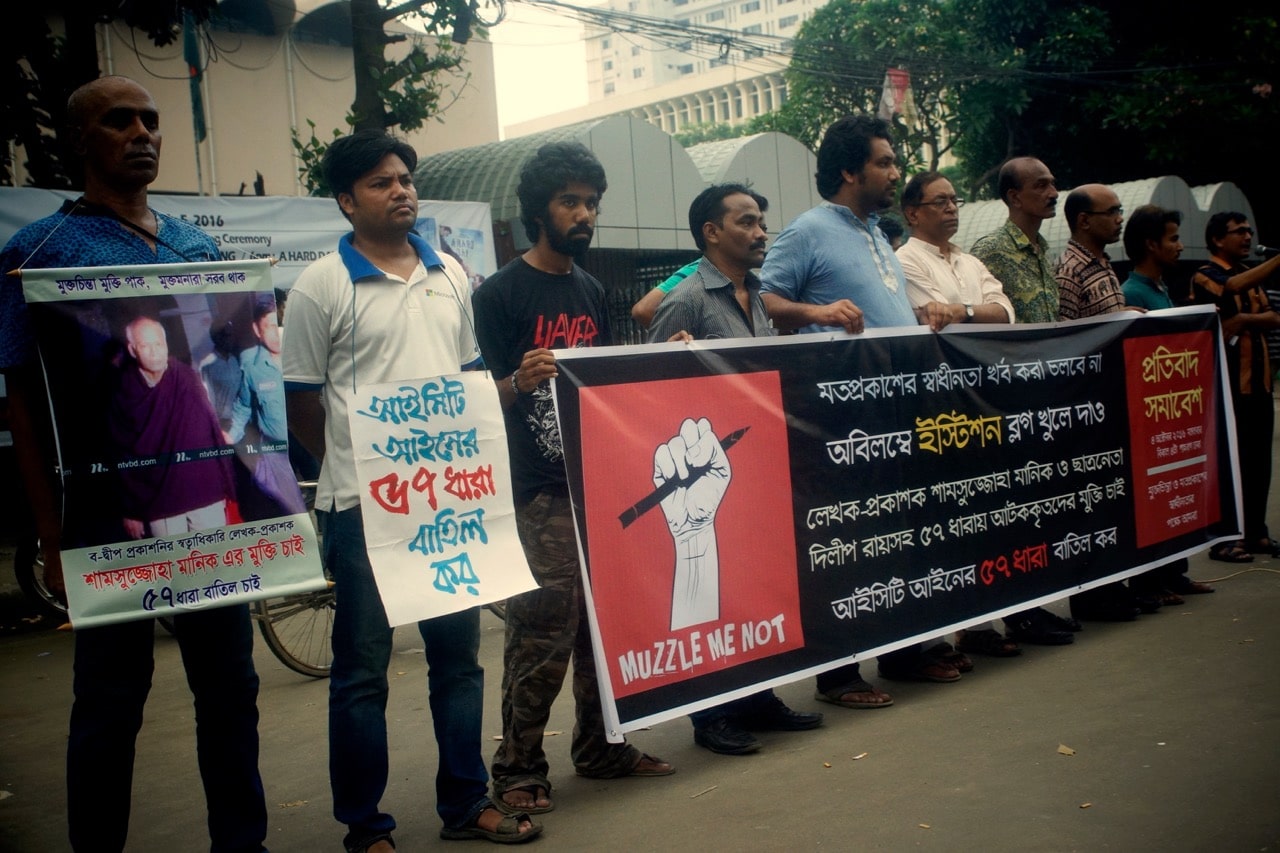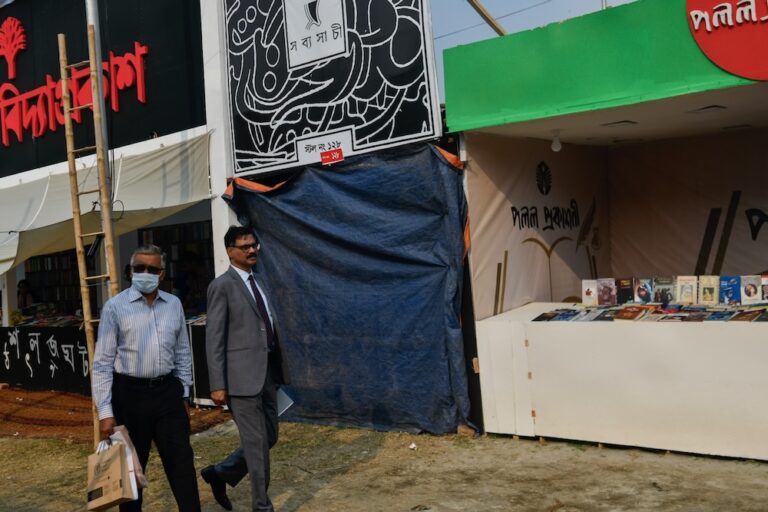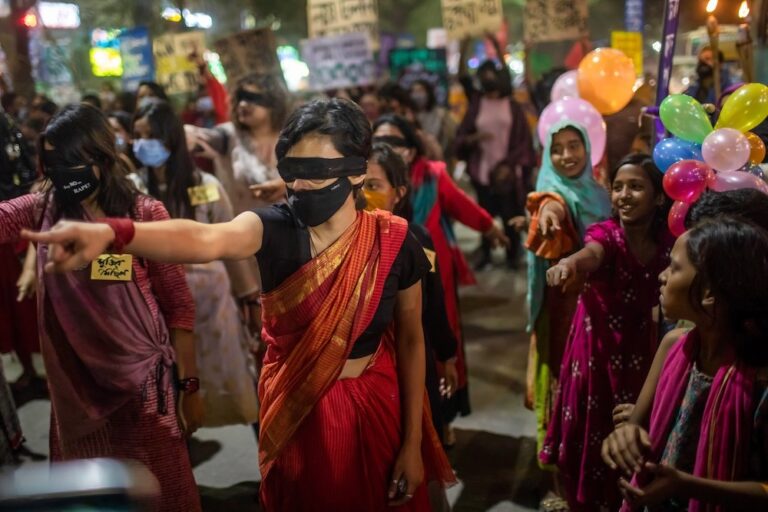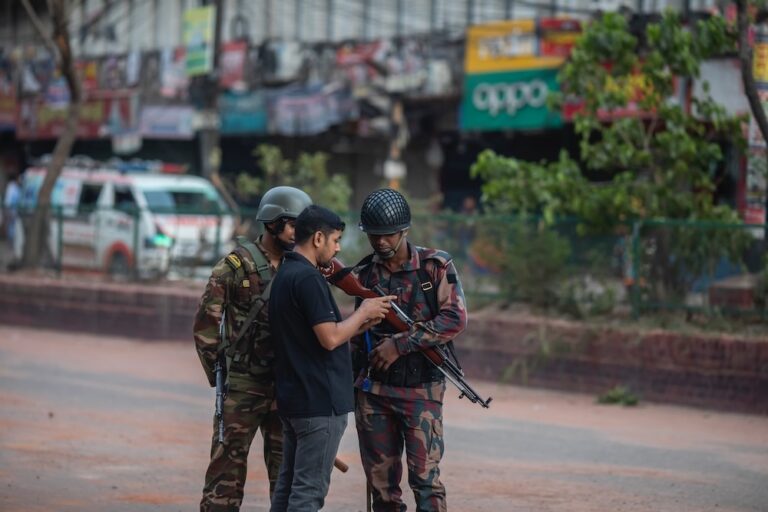The blogger faces between seven and fourteen years imprisonment for a 'blasphemous' Facebook post.
This statement was originally published on pen.org on 11 January 2018.
Following the arrest and continued detention of blogger Asad Noor, PEN America calls on the government of Bangladesh to drop the charges against Noor, release him, and ensure his safety and protection from extremist groups that may seek to do him harm.
Asaduzzaman Noor (more commonly known as Asad Noor) was arrested on December 26, 2017 at Hazrat Shahjalal International Airport in Dhaka as he was about to leave the country on a flight to Kathmandu, Nepal. The head of an Islamic seminary had initiated a criminal action against Noor, accusing him of creating content on social media that “hurt religious feeling by mocking Prophet Mohammed” and making negative comments toward Islam. Police charged Noor on January 11, 2017 with defamation of religion under the 2013 Information and Communication Technology (ICT) Act, and Noor has been in hiding in both Bangladesh and India since. If convicted under the ICT Act, Noor faces between seven and fourteen years imprisonment.
“The arrest and detention of Asad Noor reflects the extremely precarious position of independent voices in Bangladesh,” said Karin Deutsch Karlekar, Director of Free Expression at Risk Programs at PEN America. “Bloggers like Noor live in fear of physical attack or even murder from extremist groups on the one hand, and then face persecution from their government – which should be acting to protect them – on the other. We ask Bangladeshi officials to release and drop the charges against Asad Noor, to take robust measures to protect him from extremist violence, and in addition, to protect, rather than prosecute, free expression.”
Since 2013, religious extremists in Bangladesh have killed more than a dozen secular, atheistic, or non-Muslim writers, bloggers, and activists, while the government has been slow to respond or even condemn the attacks. In addition, the draconian ICT Act has served only to legitimize these assaults by criminalizing the very speech for which these writers face persecution from extremists. Though the government has increased efforts to curb fundamentalist violence, it has done so while concurrently increasing criminal prosecution of blasphemous speech, with dozens of cases filed in the past several years. PEN America has previously condemned the brutal killings of Bangladeshi writers, professors, and activists such as Xulhaz Mannan, Avijit Roy, and Rezaul Karim Siddique, among others, and continues to work on numerous cases of other writers driven into exile by these threats.



